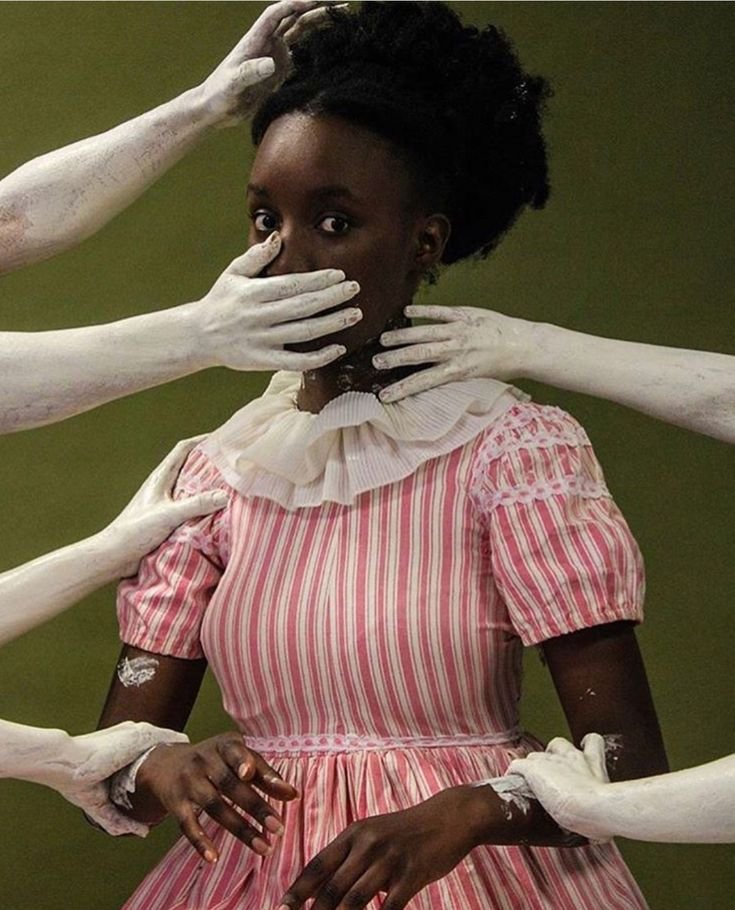
Venus
Cellophane by FKA Twigs , I connected to the play Venus by Suzan-Lori Parks and intersectionality. The song talks about the real experience of Tahliah Debrett Barnett aka FKA Twigs and her relationship with Robert Patterson. Twigs being a black woman in a relationship with a white man who was seen as a heart throb opened her up to a lot of scrutiny and judgement. They trashed her complexion, background, and looks because they didn’t like the fact that she was with Robert Patterson. In the song she sings about never being enough because he didn’t defend her from the backlash, she was receiving which ultimately was destroying her. In the end Robert and FKA Twigs broke up and she created cellophane to talk about her experience and to shine light on how she was treated for being with a white heartthrob. In the piece she sings the lyrics:
“Didn't I do it for you?
Why don’t I do it for you?
Why won't you do it for me
When all I do is for you?
These lyrics reminded me of Venus, who like Twigs just wanted to be loved by her partner and seen as she was. She wanted to be his equal and something he would love and care about. In the end they both ended up not receiving that from their partners. “They wanna see us, wanna see us alone” Twigs also sings in the refrain of the song repeatedly which could represent all the different judgements and bullying Twigs was receiving constantly through her relationships. When black women enter spaces that people think isn’t made for black women, the criticism they receive isn’t only focused on their race, it’s focused on their gender, their looks. Many layers that black men wouldn’t understand. She like Venus was being put on the front burner for the world to judge because of her love of a man who she thought at the very least could respect her enough to treat her as a person.

won’t you come and celebrate with me by Lucille Clifton
won't you celebrate with me
what i have shaped into
a kind of life? i had no model.
born in babylon
both nonwhite and woman
what did i see to be except myself?
i made it up
here on this bridge between
starshine and clay,
my one hand holding tight
my other hand; come celebrate
with me that everyday
something has tried to kill me
and has failed.

I chose this poem by Lucille Clifton because I think it speaks deeply to the character of Venus in the play of that name. She had been through so much scrutiny and analysis of the people in her life who only saw her as a marvel rather than a person. The one person she wanted by her side, to love and celebrate her couldn’t even do that for her. No one to love her, no one to see her, no one who she should’ve trusted in her life but yet she continued to live and experience life. Talked around by the people in her life and only being desired after in a sexual manor not in a relationship way. She is the definition of everything tried to kill her but failed. I also think the line:
“both nonwhite and woman
what did i see to be except myself?”
is so powerful within this play because of Venus’ body, skin and hair she couldn’t be anything other than a marvel for the white people analyzing her but to Venus it was just her. She couldn’t have been anything else if she wanted to.








The last of this curatorial response will be select photos that I feel connect to the theme of oppression in Parks’ Venus. Venus never had a voice within the people who surrounded her. She would often be talked around and talked about like she wasn’t in the room. In moments of the play, it seemed as if Venus was starting to dissociate because of this purposeful ignoring that was happening to her. Similarly, I feel the photos that were selected also help to create that type of aura or energy that could be seen similarly to Venus’s dissociation. The two congruent photos of the little girl with the stripped dress foster the energy similar to how Venus could’ve been feeling. Dressed up to be marveled but never looked towards to speak her mind. Ultimately the little girl is almost completely removed from the situation as she stares at the camera, as if she is staring at us the viewer. She has no voice to speak anymore but within her eyes and the hands around you can tell the story that words that don’t need to. There is also the loosening of the clothing and the shaking of hands which is even more grim within the context that they took their hands off her mouth leaving smears. In the second photo series titled “Chokehold” by Jahi Chikwendiu which’s focus is the internalizing racism and how it’s dangerous. The photos show the person themselves removing their voice doing the work of the oppressor to themselves. The imagery of the white hands controlling and almost making the person do these things is perfect for the imagery of Venus as it seems like she wants this love with the doctor, but she never had a choice from the beginning. The illusion of choice within oppression is a key factor as to why people think they can change things within the oppressor’s system.